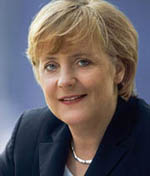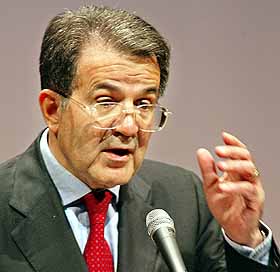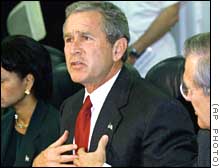



LANGUAGE AND POLITICS




People sometimes explicitly argue about the meanings of words like democracy, nationalization, imperialism, socialism, liberation or terrorism. More often, they use the words in more or less pointedly different and incompatible ways - examples are easy to find in exchanges between leaders of political parties, or between, say, the Soviet Union and the United States of America. Such disputes are sometimes seen as merely preliminaries to or outgrowths from the real processes and practices of politics. What I am suggesting is that they are not: they are politics. Politics partly consists in the disputes and struggles which occur in language and over language
(Norman Fairclough)
Politicians are excellent orators. We all agree with this statement. They exercise and perpetuate their power through the speeches and discourses they deliver. They impose their ideologies in subtle and effective ways, by conveying their beliefs and convictions as they were pure "common sense". Very often, ideological assumptions are labelled as commonsensical, they are apparently naturalized, rationalized and legitimized and they end up by losing their original ideological character, turning themselves into transparent and self-evident truths. "Naturalization", Foucault claims, "is the most formidable weapon in the armoury of power, and therefore a significant focus of struggle" .
Nowadays we are always uncounsciously influenced by the power of ideologies, and we find it very difficult to counteract it. We are bombarded with so many implicit ideological messages that we are not able to perceive how much they influence our way of thinking. That is why we must look out. We must not be passive readers. Even if we are not expert linguists, we should practice constantly the critical discourse analysis of the texts we come into contact every day. What is critical discourse analysis? Well, it is a critical approach adopted by lots of linguists, in the last 20 years, in order to unmask and unveil the idelogical interests and assumptions hidden behind the different types of discourses. Critical discourse analysts examine the value of words used in a certain text, their meaning relations. They concentrate their attention on the grammatical features of a text, on the recurrent metaphors, on the logical connectors that are employed by the author. They ask themselves this type of questions: Are "nominalizations" used? Are sentences active or passive? Is agency unclear? What modes are used? Declarative, interrogative or imperative? Are the pronouns "we" and "you" used, and if so, how? Are complex sentences characterized by coordination or subordination?
At this point, a dilemma arises spontaneously: is the analyst's method immune from ideological beliefs and assumptions? What distinguishes a critical discourse analyst from a common reader/interpreter? The answer is selfconsciousness. As Norman Fairclough argues: "The analyst is doing the same as the participant interpreter, but unlike the participant interpreter the analyst is concerned to explicate what he/she is doing".
INTERESTING LINKS
Here are some of the most famous discourse analysts: